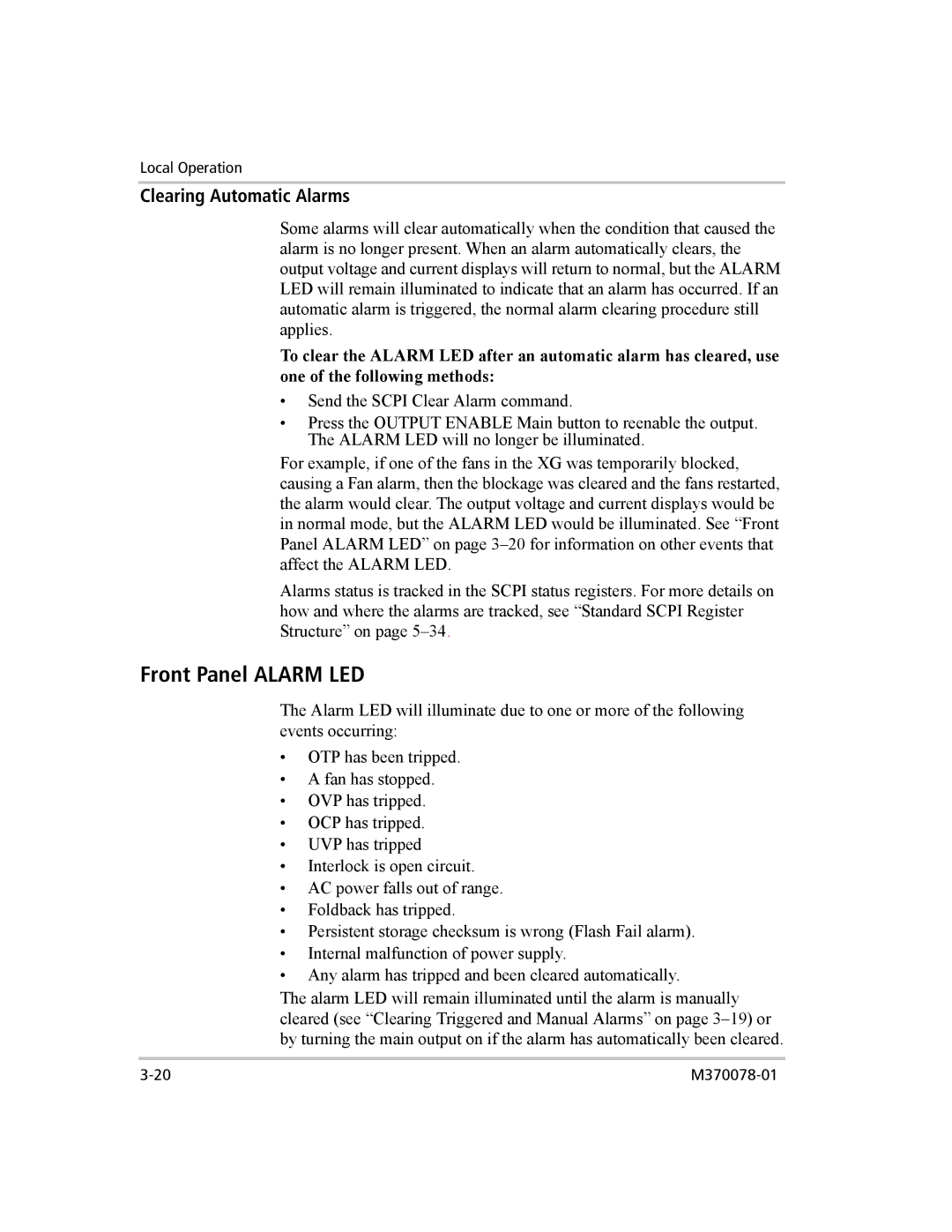
Local Operation
Clearing Automatic Alarms
Some alarms will clear automatically when the condition that caused the alarm is no longer present. When an alarm automatically clears, the output voltage and current displays will return to normal, but the ALARM LED will remain illuminated to indicate that an alarm has occurred. If an automatic alarm is triggered, the normal alarm clearing procedure still applies.
To clear the ALARM LED after an automatic alarm has cleared, use one of the following methods:
•Send the SCPI Clear Alarm command.
•Press the OUTPUT ENABLE Main button to reenable the output. The ALARM LED will no longer be illuminated.
For example, if one of the fans in the XG was temporarily blocked, causing a Fan alarm, then the blockage was cleared and the fans restarted, the alarm would clear. The output voltage and current displays would be in normal mode, but the ALARM LED would be illuminated. See “Front Panel ALARM LED” on page
Alarms status is tracked in the SCPI status registers. For more details on how and where the alarms are tracked, see “Standard SCPI Register Structure” on page
Front Panel ALARM LED
The Alarm LED will illuminate due to one or more of the following events occurring:
•OTP has been tripped.
•A fan has stopped.
•OVP has tripped.
•OCP has tripped.
•UVP has tripped
•Interlock is open circuit.
•AC power falls out of range.
•Foldback has tripped.
•Persistent storage checksum is wrong (Flash Fail alarm).
•Internal malfunction of power supply.
•Any alarm has tripped and been cleared automatically.
The alarm LED will remain illuminated until the alarm is manually cleared (see “Clearing Triggered and Manual Alarms” on page
